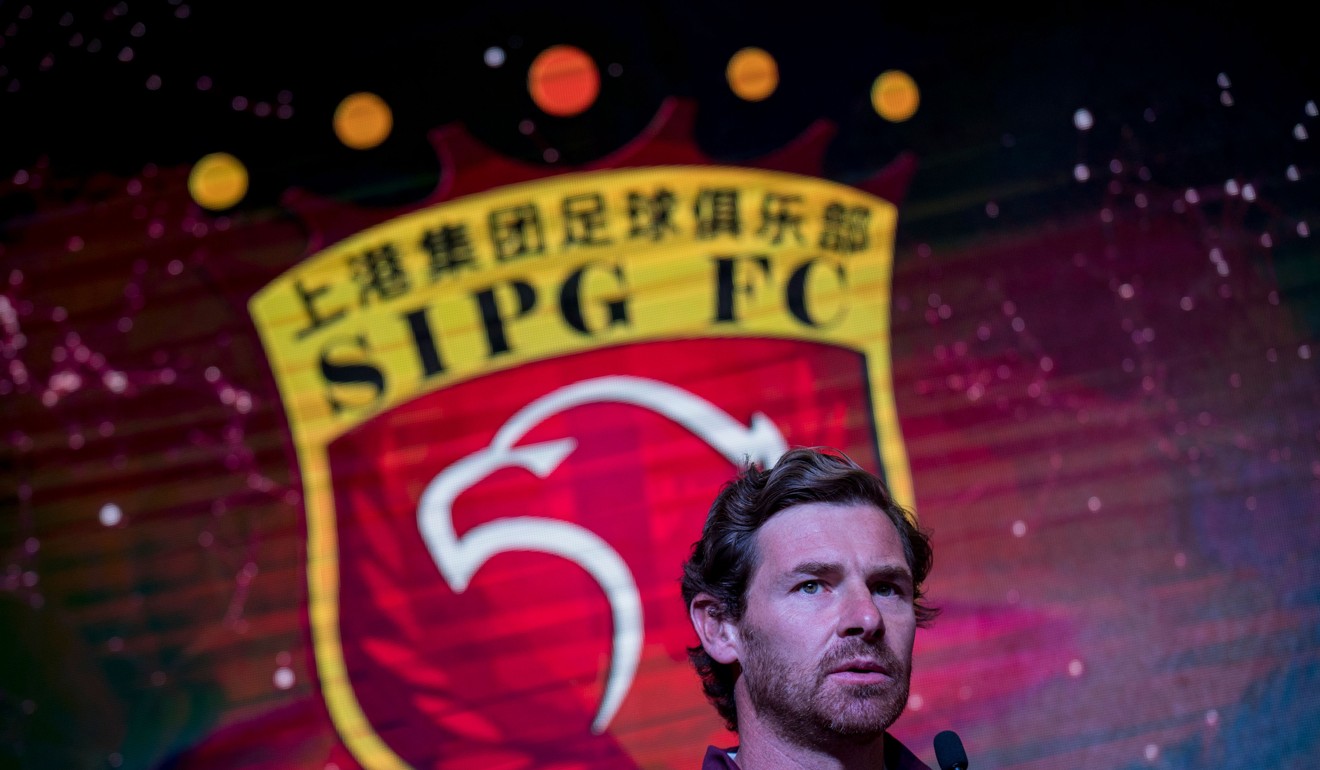
Football clubs specialise in social media own goals and Chinese Super League sides are in a class of their own
Badly judged call to arms is another classic example of clubs failing to understand and use social media to their advantage
A cursory glance at Twitter timelines shows you that death threats and social media are regular bedfellows – just not usually from the official accounts of football clubs.
“Kill Shenhua,” someone wrote on Chinese Super League club Jiangsu Suning’s official Sina Weibo last weekend, “in a season we do it twice.”
For good measure, they also used their character limit to turn the air as blue as the Shenhua home shirt.
No one is going to kill anyone, of course, and it was immediately deleted, as you’d expect, but not before a screenshot for posterity.
The club has since apologised.
“We apologise to Shanghai Shenhua and their fans,” said the club. “At the same time, the club immediately and severely dealt with the Weibo account operator and manager who made this mistake.”
For context, the sides have history.
The arrivistes are ahead of the Shanghai stalwarts but the real conflict comes from Shanghainese not being too happy with the number of migrants from Jiangsu in their city – and Shenhua is the club of the Shanghainese.
While Shenhua have the China derby with Beijing Guoan and the city rivalry with Shanghai SIPG, the Nanjing-based side don’t really have anything else to clutch to.
This might explain the youthful exuberance of whoever posted the ill-judged call to arms.
It’s just another item on the long list that proves social media is something that football clubs don’t get and China is no exception.
For a league that is not yet a quarter of a century old, it’s got the traditionalists and conservatism of one a century older.
The “Kill Shenhua” post came after the side’s game against Tianjin Quanjian, a team that used their own Sina Weibo to make the best fist of playing a home game 2,000 kilometres from home.
The Tianjin side claimed that moving their AFC Champions League game against Japanese J.League side Kashima Antlers to Macau was all good because “it’s still China”.
It might be but it’s also the same distance as they travelled to Japan for the first leg.
Social media is not a problem confined to Chinese clubs, of course, but it seems particularly problematic in China.
Last season, Shanghai SIPG manager Andre Villas-Boas ended up with atwo-game ban from the Chinese Football Association for a social media outburst over Oscar’s eight-game suspension.

Ahead of this season, and reports that Wanda Group were going to take over Dalian Yifang, the club announced there would be a press conference and subsequently deleted the post.
In the summer, Chongqing Lifan issued a statement via their Weibo that they were categorically not pursuing Barcelona star Andres Iniesta, then owner Jiang Lizhang later apologised for not signing the Spanish World Cup winner. The side also “announced” new signing Lasse Vibe by casually mentioning him as a scorer in an online match report.
Most recently, Barcelona announced Paulinho’s transfer back to Guangzhou Evergrande on their Sina Weibo ahead of announcing it in Spain.
It was quickly deleted but was snapped and posted on Twitter.
And then there was the cash bonus at Guizhou Zhicheng, where US$1.5 million was literally on the table for a win – something the club denied as “fake news” which served only to further fan the flames.
An official statement said the Guangzhou Metropolitan Daily report had “severely damaged the club’s reputation”. That again. And it fined several staff including the whole media department for “dereliction of duty”.
In 2018, no business (football club) or brand (footballers) can afford to be without a social media presence and when it works it can be a thing of beauty.
Look at Pato, the Benjamin Mendy of the Chinese Super League, spending his time making dumplings, wishing his fans a Happy Lunar New Year or trying to befriend triple threat Dilereba.
But that’s the exception that proves the rule: football cannot really be trusted on social media.
Kenedy, now on loan at Newcastle United from Chelsea, incited the wrath of China’s keyboard warriors with ill-thought posts when the club toured Beijing in 2017 – posts “that caused great offence and hurt the feelings of the people of China”.
The London club apologised but the damage was done.

As fast as social media moves, Chinese social media is Usain Bolt.
Nevertheless, the major European leagues and their clubs are all entering the Chinese social media market, setting up official accounts and mainland offices to run them.
In that sense the CSL is behind.
Not only is it not engaging fans at home but for a league that is broadcast in 96 countries and is “extremely popular outside of China”, according to recent Yicai report, it’s not doing too well overseas.
It’s still unclear how “official” its official English language presence on Twitter that was announced in May actually is, but with less than 2,000 followers it probably doesn’t matter.
Admittedly, not everyone can be Roma – and most European football clubs aren’t a patch on the Italians as they try to mimic them with ever more cringeworthy posts – but whether in Chinese or English the CSL and its clubs seem hell bent on specialising in social media own goals.

